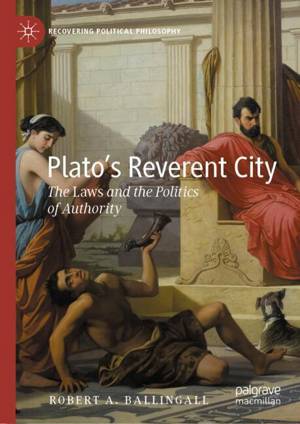
- Retrait gratuit dans votre magasin Club
- 7.000.000 titres dans notre catalogue
- Payer en toute sécurité
- Toujours un magasin près de chez vous
- Retrait gratuit dans votre magasin Club
- 7.000.0000 titres dans notre catalogue
- Payer en toute sécurité
- Toujours un magasin près de chez vous
Description
This book offers an original interpretation of Plato's Laws and a new account of its enduring importance. Ballingall argues that the republican regime conceived in the Laws is built on "reverence," an archaic virtue governing emotions of self-assessment--particularly awe and shame. Ballingall demonstrates how learning to feel these emotions in the right way, at the right time, and for the right things is the necessary basis for the rule of law conceived in the dialogue. The Laws remains surprisingly neglected in the scholarly literature, although this is changing. The cynical populisms haunting liberal democracies are focusing new attention on the "characterological" basis of constitutional government and Plato's Laws remains an indispensable resource on this question, especially when we attend to the theme of reverence at its core.
Spécifications
Parties prenantes
- Auteur(s) :
- Editeur:
Contenu
- Nombre de pages :
- 236
- Langue:
- Anglais
- Collection :
Caractéristiques
- EAN:
- 9783031313028
- Date de parution :
- 16-07-23
- Format:
- Livre relié
- Format numérique:
- Genaaid
- Dimensions :
- 148 mm x 210 mm
- Poids :
- 458 g

Les avis
Nous publions uniquement les avis qui respectent les conditions requises. Consultez nos conditions pour les avis.






